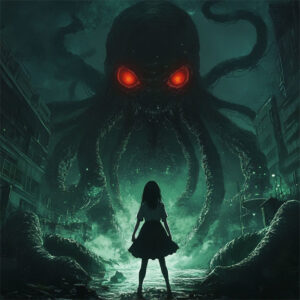 QAnon is essentially a conspiracy street sausage: scrap and leftovers of past conspiracies wrapped in the intestines of an apocalyptic cult and served up to people who are not careful about what gets into their minds. But it is also a fascinating bit of story design that mirrors classic techniques used to write horror adventures in role-playing games and tales of terror.
QAnon is essentially a conspiracy street sausage: scrap and leftovers of past conspiracies wrapped in the intestines of an apocalyptic cult and served up to people who are not careful about what gets into their minds. But it is also a fascinating bit of story design that mirrors classic techniques used to write horror adventures in role-playing games and tales of terror.
Put a bit simply, QAnon is a conspiracy theory that there is a worldwide cabal of Satan-worshiping (possibly cannibal) pedophiles operating a sex-trafficking ring. Since these are criminal activities universally condemned as morally horrific, the story of QAnon should be in the police procedural genre. If the evidence QAnon claims existed, then there should be worldwide arrests with public support. While there have been arrests and investigations featuring the likes of Jeffrey Epstein and Ghislaine Maxwell, there is no evidence of activity against this alleged cabal. This is not surprising as the authors of the conspiracy seem to be using a classic technique used in horror adventures in games and stories, that of negating the authorities to make room for the heroes.
In horror role-playing games such as Call of Cthulhu, one takes on the role of a hero attempting to thwart or at least delay the machinations of evil. One practical concern is providing a rational explanation as to why the heroes are the ones who must save the day. The heroes are usually just a random collection of people thrown into horror. They are almost never in positions of meaningful power or authority. As such, they are not the ones to take on the job because they have an army or police force to get it done for them. They are the ones to do the job because they are the heroes. There must also be a rational explanation that explains why the authorities are not the ones solving the problem, otherwise there would be no need for the heroes. There are a variety of ways to handle this negation of authority.
One classic is isolation. The heroes are someplace where there are no authorities who can save the day. They might, for example, be in a cabin deep in the Maine woods with no phone service or working transportation. They might, as another example, be on a damaged ship with no power and no working radio. QAnon does not use this approach, since it would not work with their horror story.
A second approach is that the authorities are unwilling or unable to help. They might be too afraid to act, they might be too weak to act, they might not know what is occurring, or the heroes might not have the evidence needed to convince them to act. In some cases, the heroes intentionally avoid involving the authorities when they believe that the authorities simply cannot handle the situation, and they do not want to get people needlessly killed. In the case of QAnon, they think that some people in power are not part of the cabal but are also not among the heroes supposedly fighting it.
A third classic approach is that the authorities are part of the conspiracy: they are not solving the problem because they are the problem. One practical concern here is that the authorities cannot be too powerful, otherwise the heroes would not stand a chance against them. QAnon does claim that at least some of those in power are part of the conspiracy. They address the power concern by making Donald Trump their main hero: he can fight against the pillars of the community because he is the President and has the military and executive branch at his disposal. This does create another sort of problem: since Trump has such overwhelming force the adventure of QAnon should have ended almost immediately with Trump saving the day immediately. As a game, it would have gone down like this:
Keeper: “Okay, you are the President of the United States and have overwhelming evidence of a cabal of pedophile sex-traffickers.”
Player: “I give the FBI director a call and send him all the evidence.”
Keeper: “Great! The cabal members are soon arrested and your approval rating skyrockets!”
Player: “How much XP is that?”
Game Master: “This is Call of Cthulhu; you just get skill improvement rolls.”
As such, QAnon must explain why their hero has not used his overwhelming power to solve the problem. This requires another technique, delayed resolution. In a story or horror adventure, an immediate and easy solution is not satisfying and so the resolution must be delayed. To steal from Aristotle, the resolution cannot come too quickly—this makes the story too short, and it will fail to satisfy. It also cannot take too long since dragging the problem out will become tedious and strain plausibility. As such, the ideal is to be neither too short nor too long but to be just right.
QAnon has attempted to delay the resolution by explaining that Trump needed time to plan and organize what they call the “Storm.” On this day Trump will finally spring into action and the cabal members will be arrested. In a horror adventure, the game master delays resolution in various ways, such as having minor villains that must be vanquished, investigations that must be conducted and red herrings that distract the heroes. In the case of QAnon, the delayed resolution seems rather too delayed: Trump is into his second terms and there has not been a drop of rain, let alone a Storm. The Storm is tomorrow and always will be.
QAnon has, of course, a long list of failed predictions and has persisted (as such cults do) through these failures; but the Storm is critical to Trump remaining the hero. A good analogy is to consider what happens to apocalyptic groups when the date of their apocalypse comes and goes without an apocalypse: they tend to collapse. QAnon has, amazingly, been able to persist despite these failed predictions and remains active today. This, I admit, has surprised me. But perhaps playing QAnon is so addictive that they cannot stop.

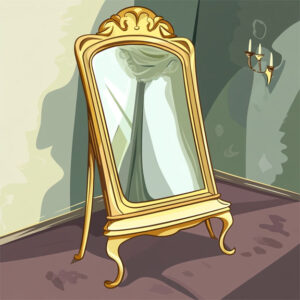 In response
In response 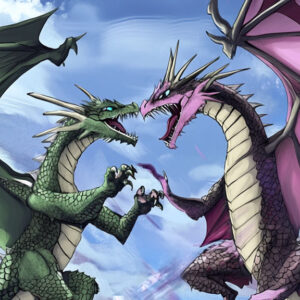 As noted in previous essays, Wizards of the Coast (WotC) created a stir when they posted an article on
As noted in previous essays, Wizards of the Coast (WotC) created a stir when they posted an article on 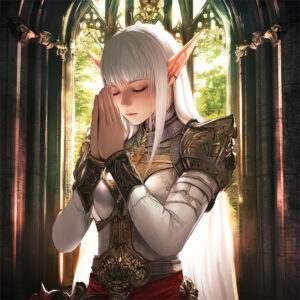 When the culture war opened a gaming front, I began to see racist posts in gaming groups on Facebook and other social media. Seeing these posts, I wondered whether they are made by gamers who are racists, racists who game or merely trolls (internet, not D&D).
When the culture war opened a gaming front, I began to see racist posts in gaming groups on Facebook and other social media. Seeing these posts, I wondered whether they are made by gamers who are racists, racists who game or merely trolls (internet, not D&D).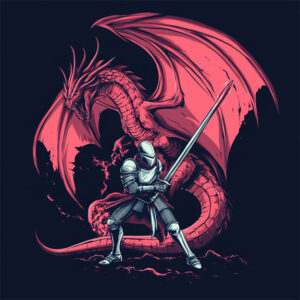 A few years ago the owners of D&D, Wizards of the Coast,
A few years ago the owners of D&D, Wizards of the Coast, 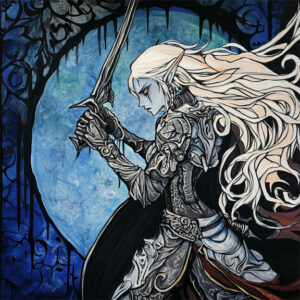 A few years ago, Wizards of the Coast(WotC), who own Dungeons & Dragons,
A few years ago, Wizards of the Coast(WotC), who own Dungeons & Dragons, 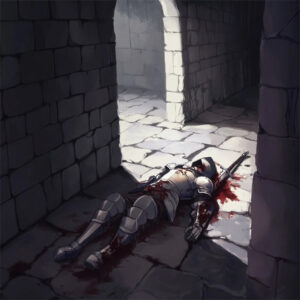 Most players agree that playing tabletop role playing games (TTRPGs) should be fun. But at the table, and away from the table, people are subject to the
Most players agree that playing tabletop role playing games (TTRPGs) should be fun. But at the table, and away from the table, people are subject to the